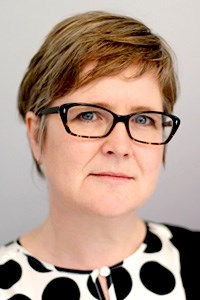At least one in 20 staff members in the NHS identifies as a member of the LGBTQ+ community, according to the most recent anonymous NHS Staff Survey. Not everyone, however, feels comfortable coming out to their employer. Visibility is therefore crucial. It can help organisations – in any field – improve insight, understanding and actions to drive improvement.
National Coming Out Day is significant for the LGBTQ+ community. Observed worldwide on 11 October since 1988, it reminds us of the importance of self-acceptance, pride, and the ongoing struggle for equality. While important strides have been made in the fight for LGBTQ+ rights, one area that still requires substantial attention is the healthcare sector.
We were encouraged to see this need recognised by NHS England, who in their Equality, Diversity and Inclusivity Improvement Plan published earlier this year, announced they were seeking to develop a new mandated workforce standard on gender identity (gender/sex) and sexual orientation.
Here are just seven reasons why it's crucial that healthcare professionals feel safe to come out at work.
- Improved patient care
When healthcare professionals are comfortable being their true selves at work, it directly benefits patient care. LGBTQ+ patients often face unique health challenges and disparities, and having healthcare providers who understand and empathise with their experiences is crucial. When healthcare workers don't feel the need to hide their sexual orientation or gender identity, it can foster a more inclusive and compassionate healthcare environment, resulting in better patient outcomes. - Breaking stereotypes
Visibility matters, especially in professions where traditional stereotypes might suggest otherwise. By coming out and being open about their LGBTQ+ identities, healthcare professionals help dispel stereotypes and misconceptions about the LGBTQ+ community. This visibility can inspire younger generations to pursue careers in healthcare without fearing discrimination or prejudice. - Promoting mental health and wellbeing
Hiding one's true self can take a toll on mental health. The healthcare sector is already a high-stress environment, and adding the burden of concealing one's identity can exacerbate stress, anxiety, and depression. When healthcare workers can be open about their identities, they are more likely to experience improved mental health, leading to better overall job performance and job satisfaction. - Enhancing workplace diversity
Diversity in the healthcare sector is not just about patient care; it's also about fostering innovation and critical thinking. When healthcare professionals from diverse backgrounds feel safe to come out and share their perspectives, it enriches the overall healthcare experience for both patients and colleagues. Diverse teams are better equipped to address complex health issues and develop innovative solutions. - Reducing discrimination and bias
Coming out at work can be a daunting prospect, particularly where biases and discrimination may persist. However, by taking this step, healthcare professionals help break down barriers and challenge systemic discrimination within their organisations. Their presence and authenticity can prompt institutions to adopt more inclusive policies and practices, creating safer and more equitable workplaces for all. - Setting a positive example
Healthcare professionals are respected members of society, and their actions can influence societal attitudes. When they openly come out, they set a positive example for others, demonstrating that it is possible to be successful and respected in their careers while being true to themselves. This can be particularly impactful for LGBTQ+ people who may still be struggling with their identities. - Legal protections and rights
While legal protections for LGBTQ+ people have improved in many parts of the world, discrimination and prejudice still exist. When working environments make it safe for healthcare professionals come out at work, it can strengthen their legal rights and protections, making it more difficult for employers to engage in discriminatory practices. This, in turn, contributes to greater overall LGBTQ+ equality. During Pride month in June, NHS Providers senior research analyst Luís Costa da Silva, who is also co-chair of NHS Providers' LGBTQ+ network, Proud Providers, hosted a special Provider Podcast episode to discuss the importance of staff networks in the NHS.
Overall, National Coming Out Day reminds us of the importance of being authentic and proud of who we are. For healthcare professionals, this celebration takes on added significance because their ability to come out at work directly impacts patient care, workplace diversity, and societal attitudes.
It is crucial we create environments where healthcare workers can be their whole selves without fear of discrimination or prejudice. By doing so, we not only support the wellbeing of healthcare professionals but enhance the quality and inclusivity of healthcare for all. National Coming Out Day is not just for LGBTQ+ people, it is for all of us, as it underlines the need to foster acceptance and diversity within the healthcare sector and beyond.
Read about Saffron's personal experience of LGBTQ+ visibility: A sense of pride: Bringing your whole self to work.
About the author

